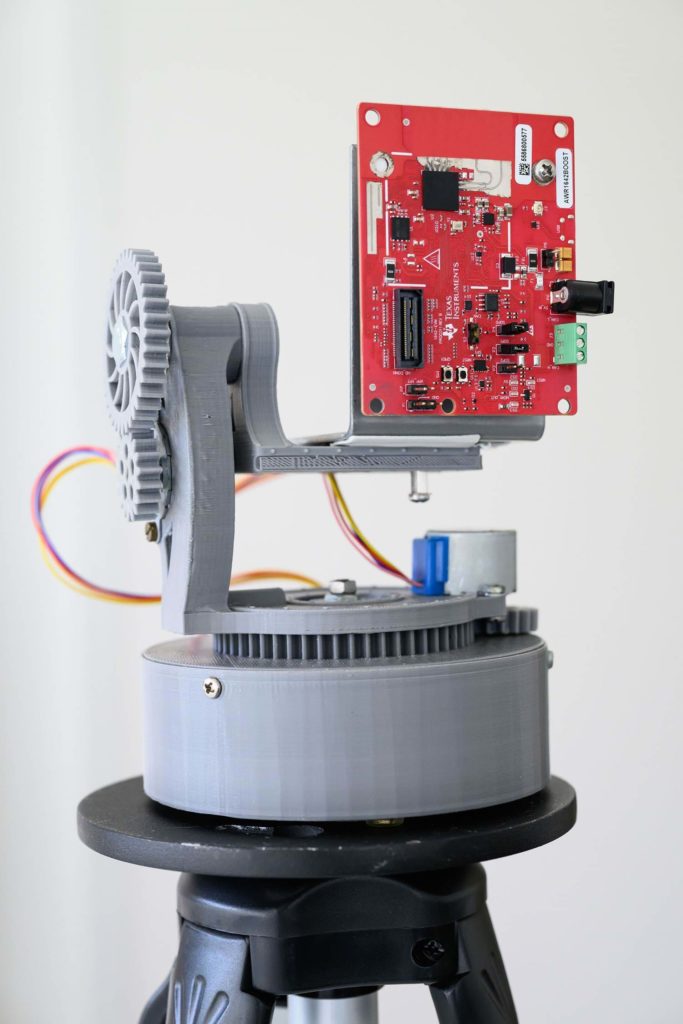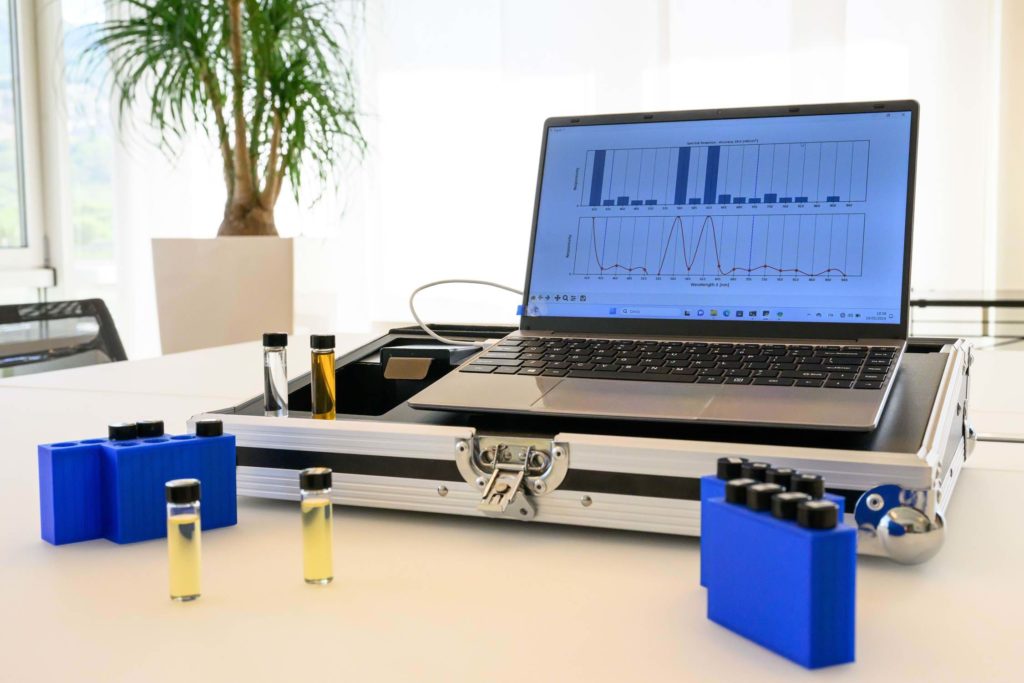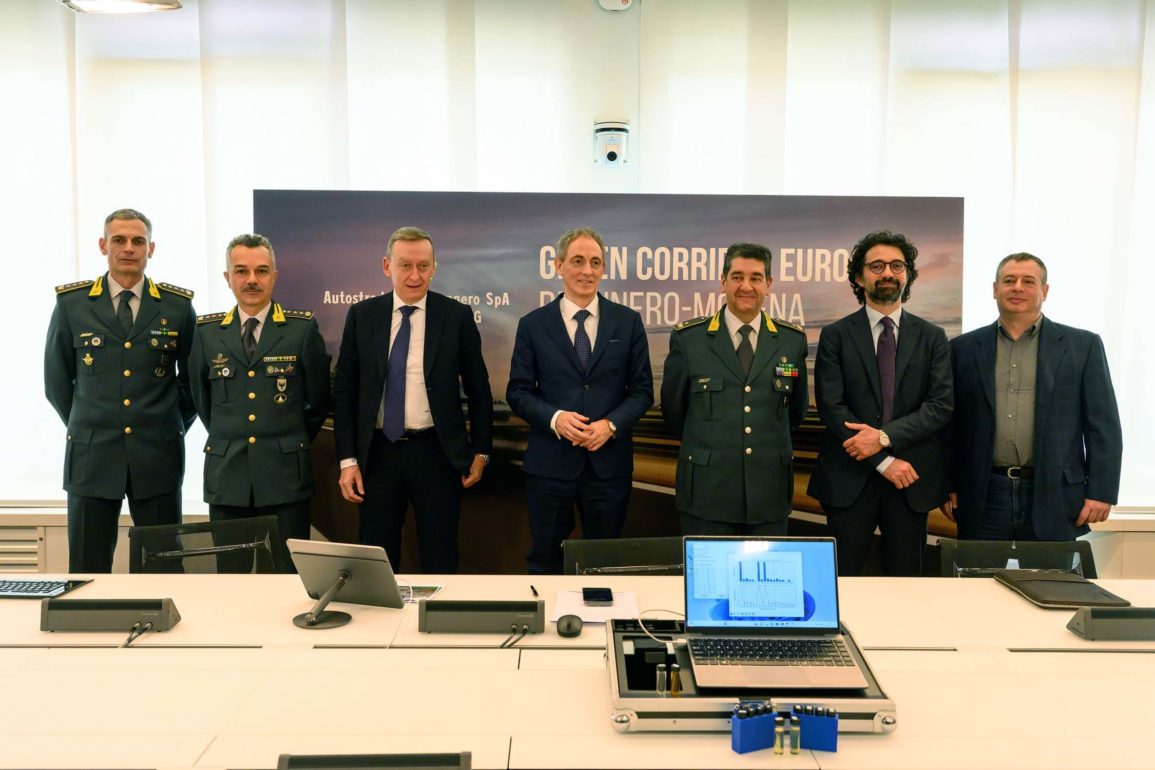The commitment to enhance motorway security and counter illicit trafficking of transit vehicles remains steadfast. Through a collaborative effort between Società Autostrada del Brennero S.p.A. and the Centre of Security and Crime Sciences at the universities of Trento and Verona, three innovative prototypes are currently under development. These prototypes, in cooperation with the Guardia di Finanza, promise heightened efficacy in monitoring the 314 kilometers of the A22 motorway. Following a comprehensive testing phase, these prototypes will be ready for deployment in autumn, bolstering surveillance along the motorway network from Brenner to Modena.

Utilizing cutting-edge technologies, the first prototype is a compact radio scanner designed for versatile use both indoors and outdoors. It excels in identifying suspicious loads and potential hidden compartments, streamlining police control operations by facilitating rapid vehicle inspections.
The remaining two prototypes also play pivotal roles in combating illicit trafficking. They are both examples of spectrophotometers, scientific instruments employed to measure light absorption in chemical solutions or materials across various wavelengths. In this context, they prove invaluable for swiftly analyzing contraband fuels and mineral oils in transit vehicles. Enhanced by artificial intelligence algorithms, these prototypes conduct fast analyses autonomously, drastically reducing inspection times. Spectrophotometers provide immediate insights into the nature of intercepted products, aiding in determining their suitability for fuel and their liability for excise duty. Both spectrophotometers are slated for full operational readiness by September, while the radar prototype is expected to be operational by November post-training for use by the Financial Police.

The development and imminent implementation of three new tools have been formalized through the signing of two additional agreements, which expand upon the 2021 framework agreement between Società Autostrada del Brennero S.p.A. and the University of Trento. These agreements are integral components of the broader Memorandum of Understanding signed in 2019, involving the University of Trento, the Regional Command of the Guardia di Finanza of Trentino Alto-Adige, the Public Prosecutor’s Office at the Ordinary Court of Trento, and the Regional Prosecutor’s Office at the Jurisdictional Section of the Court of Auditors for Trentino-Alto Adige/Südtirol.The A2 2 serves as a vital logistical and commercial artery for the national territory, traversing four regions from north to south: Trentino-Alto Adige, Veneto, Lombardy, and Emilia-Romagna. Despite constituting only 5% of the Italian motorway network, the A22 witnesses an annual traffic volume of 70 million vehicles and handles 10.5% of the entire national import-export activity. However, the Brenner axis also serves as a primary conduit for traffickers smuggling various illegal goods, including contraband fuels, mineral oils, counterfeit products such as cigarettes, and even human trafficking and migrant smuggling.
“The new prototypes represent significant advancements in efficiency and user-friendliness compared to their predecessors developed under the previous agreement,” explains Massimo Donelli, professor at the Department of Civil, Environmental, and Mechanical Engineering of the University of Trento and scientific coordinator of the projects for the Centre of Security and Crime Sciences. “This improvement is largely attributed to the integration of artificial intelligence. The data collected by these devices will facilitate the analysis of cargo contents within transport vehicles such as trucks, containers, and tarpaulins, enabling the identification of various cargo types. Consequently, precise information can be relayed to law enforcement agencies, particularly the Guardia di Finanza, concerning anomalies and the presence of humans or animals. These technological applications in the security domain align seamlessly with the Center’s core activities, leveraging its robust multidisciplinary expertise in development and management.”
“The Brenner Pass,” observes Diego Cattoni, CEO of Autostrada del Brennero, “serves as a vital link between Europe’s two most significant manufacturing countries, Italy and Germany. Its economic, social, and political importance is therefore unmistakable and immensely high. As a motorway concessionaire, it’s our responsibility to ensure the safety of individuals and goods traversing this route while maximizing efficiency. The tools and synergies cultivated through these agreements serve as invaluable assets in enhancing our strategy day by day.”
“Developing new tools to bolster investigative efforts against illicit trafficking along the A22 Brennero motorway,” adds Andrea Di Nicola, professor of Criminology at the University of Trento’s Faculty of Law and director of the Centre, “represents a significant step towards substantially improving safety levels along this critical stretch of motorway, not only for our region but for the entire nation. The Center, established jointly by the universities of Trento and Verona, serves as a platform for applied research on security to collaborate closely with security institutions. Our partnership with Autostrada del Brennero S.p.A. and collaboration with the Trentino Alto-Adige Regional Command of the Guardia di Finanza serve as vital testing grounds for us.”
“Engaged daily in combating illicit trafficking that undermines both Treasury interests and citizen well-being, the Corps will deploy its personnel and resources to ensure the scientific methodologies of the projects are effectively translated into operational reality,” emphasizes Gen. B. Guido Zelano, Regional Commander of the Trentino Alto Adige Financial Police.
“These tools,” continues Carlo Costa, Technical Director of Autostrada del Brennero, “significantly enhance our ongoing commitment. As a border motorway, heightened vigilance is paramount. Currently, we are constructing a heavy vehicle inspection station near the Vipiteno barrier, which will undoubtedly enhance the effectiveness of our inspection operations.”
RAI News [in Italian]

